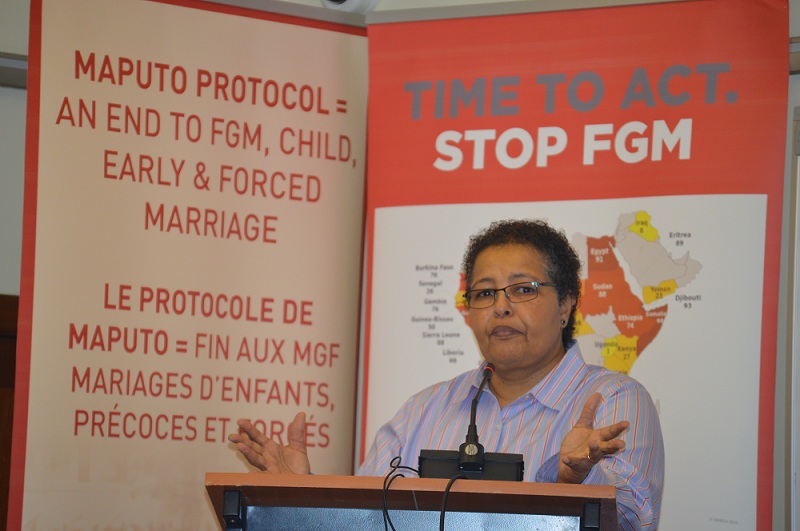Reflection of this year’s International Women’s Day

As the world celebrates this year’s International Women’s Day, Faiza Jama Mohamed, who has immensely contributed to the struggles for African women’s rights for many decades.
Faiza Jama Mohamed is Africa Director for international women’s rights organisation Equality Now and has been instrumental in building several women’s organisations and is a key founder of the pan-African coalition Solidarity for African Women’s Rights. She also serves on numerous boards and committees, including working with the African Union Commission to address women’s rights issues.
She was a driving force in the women’s movement in Somalia for 20 years and co-founded the country’s Coalition for Grassroots Women’s Organisations. In 1998, she received the Hundred Heroines Award in recognition of her activism in support of Somali women, and in 2008, she was awarded the Hunger Project’s Africa Prize for Leadership for Sustainable End of Hunger.
Her mantra: “Always be optimistic! Obstacles or challenges are temporary and they can be overcome with determination and persistent effort!”
In her own words, She reveals what motivates her, “I have never been a spectator. From a young age I knew that if you do something, no matter how small, something has got to give and change will reverberate. If I did not like something I would speak up. This is thanks to my parents; they were my big supporters and encouraged me. Inspired by them, I am calling on each one of us to speak up and take action to address human rights violations.”
“Positively impacting on the life of women and girls makes me feel happy and fulfilled, although I wouldn’t describe it as an achievement. Rights abuses exist in many forms, including female genital mutilation; child marriage; sex trafficking; sexual violence, harassment and coercion; and discrimination in the law. What matters to me is that the work I do with Equality Now is helping to bring a just world for women and girls closer to reality, and we can achieve this when countries have good laws in place and apply a multi sectorial approach incorporating a range of strategies.”
“I have worked both directly and indirectly to help women and girls access justice when their country’s justice systems fail. One example of success dates back to 2001, when Equality Now and the Ethiopian Women Lawyers Association filed a case at the African Commission on Human and Peoples’ Rights, after the Ethiopian justice system failed to apprehend perpetrators of a gang rape.”
“Late one night, Berew Jemma Negussie and a group of accomplices broke into the home of 13-year-old Ethiopian girl, Woineshet Zebene Negash, to kidnap and rape her. The perpetrators of this heinous act were arrested after her teachers reported the incident to the police. Woineshet was rescued but was later forced to sign a ‘marriage contract’, which would oblige her to marry her rapist. Shockingly, Woineshet’s case was not unusual in Ethiopia, where abduction was commonly used as a tool to force girls into marriage.”
“It took a long time to win justice for Woineshet, but 15 years after the case was originally filled the African Commission concluded that the Ethiopian state had not protected Woineshet and had failed in its duty to provide a decent justice system. In the ruling, the Commission instructed Ethiopia to pay her US $150,000 in compensation. Furthermore, Ethiopia was required to put measures in place to deal with ‘marriage’ by abduction and rape.”
“I am optimistic. Nothing is impossible. What is needed is just commitment to make that happen. Commit to do something. Commit to change the life of a woman or a girl to fully enjoy her human rights.”
* Equality Now
Equality Now is an international human rights organisation that works to protect and promote the rights of women and girls around the world by combining grassroots activism with international, regional and national legal advocacy. Our international network of lawyers, activists, and supporters achieve legal and systemic change by holding governments responsible for enacting and enforcing laws and policies that end legal inequality, sexual trafficking, sexual violence, and harmful practices such as female genital mutilation and child marriage.
For more information about Equality Now’s work please go to www.equalitynow.org or follow us on Twitter @equalitynow @EndingFGM
